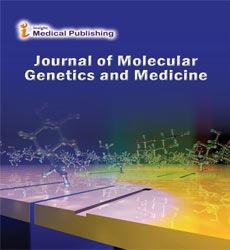Epigenetics in Melodys plastic syndromes.
Al-Anazi WK
Department of Pathology, King Fahad Specialist Hospital, Saudi Arabia
Received: July 13, 2022; Accepted: July 18, 2022; Published: July 22, 2022
Abstract
Epigenetics links developmental biology, genetics and environment. Dysregulation of epigenetic events can lead to evolution of several diseases including cancer. Various types of epigenetic therapies can potentially treat many diseases such as myelodysplastic syndromes, solid tumors, autoimmune diseases and neurological disorders. The two main classes of epigenetic therapies are inhibitors of the enzymes DNA methyltransferase and histone deacetylase. Despite the progress achieved after introduction of epigenetic therapies, particularly the hypomethylating drugs azacitidine and decitabine, in the management of patients with myelodysplastic syndromes further efforts are needed to improve the outcome of these patients. This is an updated review on epigenetics, epigenetic targets and existing as well as evolving epigenetic therapeutics in myelodysplastic syndromes. However, the hypomethylating agents azacitidine and decitabine as well as histone deacetylase inhibitors will be thoroughly discussed.
Open Access Journals
- Aquaculture & Veterinary Science
- Chemistry & Chemical Sciences
- Clinical Sciences
- Engineering
- General Science
- Genetics & Molecular Biology
- Health Care & Nursing
- Immunology & Microbiology
- Materials Science
- Mathematics & Physics
- Medical Sciences
- Neurology & Psychiatry
- Oncology & Cancer Science
- Pharmaceutical Sciences
